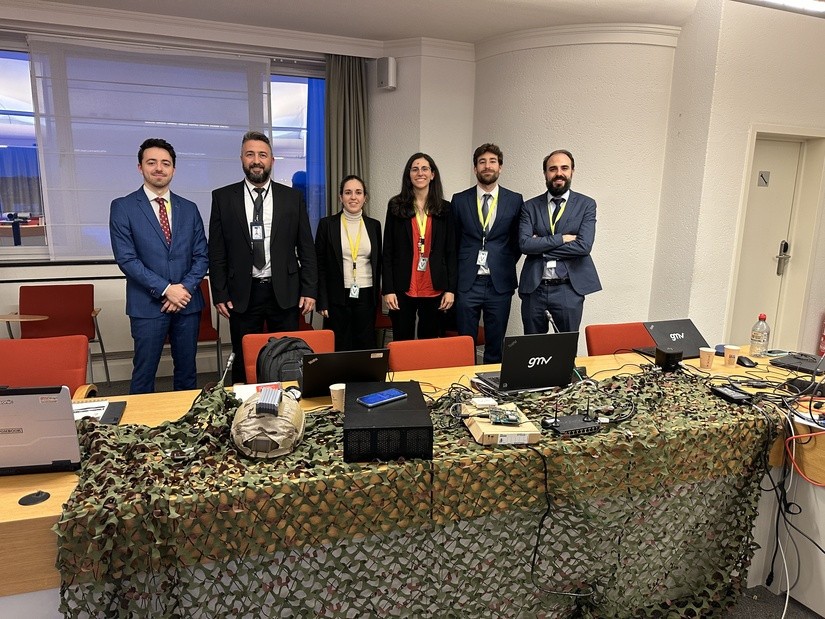The EDA’s CLAUDIA project comes to an end with a demonstration of technologies.

On Thursday, January 25, the facilities of the European Defence Agency in Brussels, Belgium, were the scene of the final workshop of the CLAUDIA project (Cloud Intelligence for Decision Making Support and Analysis). This project is part of a four-year contract signed with the European Defence Agency (EDA) in 2019 and was led by GMV for the development of a modular software analysis platform (SWAN).
Today, military operations are increasingly dependent on data, making access to cloud technologies critical. In this sense, CLAUDIA’s main objective was to investigate the possibilities of helping in the analysis and evaluation of the decision-making process, focusing on the military scenarios related to hybrid defense, through extensive analysis and processing of the different data involved. The study was conducted around the management and processing of information from heterogeneous sources; tactical cloud infrastructure for command, control, communications, computers (C4), intelligence, surveillance and reconnaissance (ISR) systems, or C4ISR; improving the information process by using AI and big data; strategic, operational and tactical level joint simulators; and Simulation as a Service (SaaS) for computer simulations of war scenarios (synthetic environments) and rapid generation of scenarios.
The workshop also featured demonstrations of all the concept tests developed over the four years, demonstrating the benefits of cloud technologies: OSINT tool employing Artificial Intelligence and Big Data techniques with distributed simulation capabilities (federated); deployment of Tactical Cloud (Fog Computing) with services for the combatant based on artificial intelligence; Internet of Military Things (IoMT); 5G private network over tactical cloud and strategic Wargaming tool.
The event brought together governmental and industry representatives, highlighting the remarkable simplicity, flexibility and scalability in military environments, as well as the ability to manage large data sets backed by artificial intelligence (AI) tools.
These advantages have the potential to significantly improve both situational awareness and the decision-making process, both at strategic and tactical levels, thus consolidating the positive impact of the technologies presented in the CLAUDIA project.